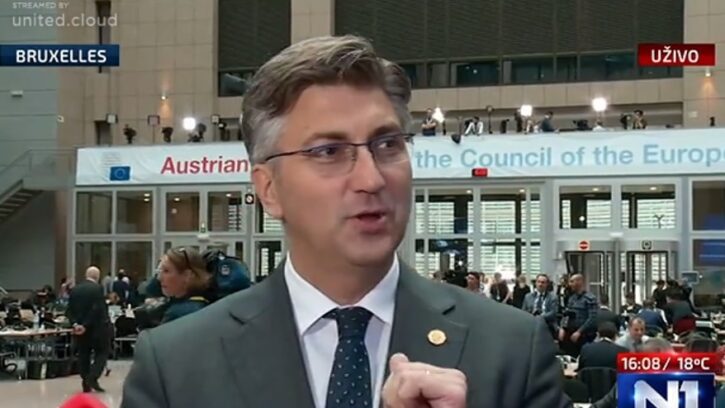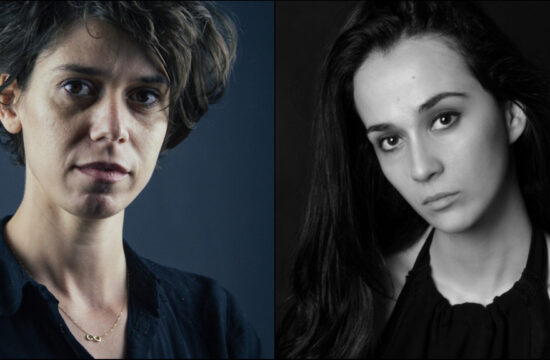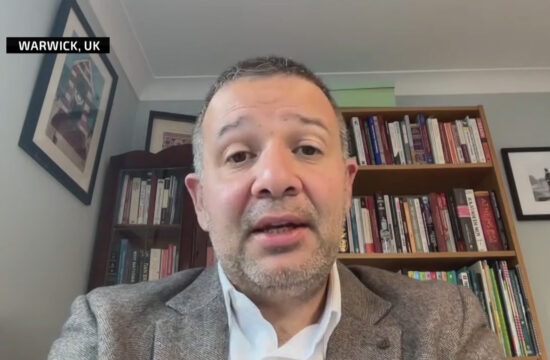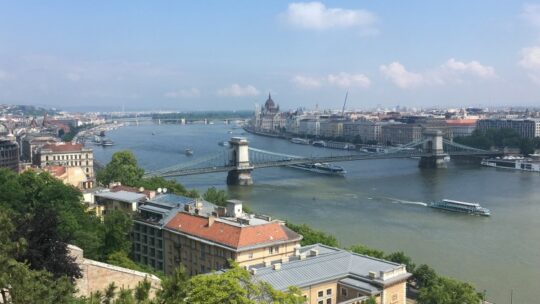
Croatian Prime Minister Andrej Plenkovic said after an EU summit in Brussels on Thursday that one of the subjects he raised during the meeting was the situation in Bosnia and Herzegovina.
Plenkovic commented on the state of affairs in Bosnia and Herzegovina after the October 7 general election, in which Zeljko Komsic was elected as a member of Bosnia’s tripartite Presidency from among the Croat people. Major Croat parties in the country said his election was not legitimate because he was elected owing to the votes of the Bosniaks and not the Croats.
The state Constitution, which stems from the Dayton Peace Agreement (DPA) which ended the 1992-95 armed conflict in Bosnia, stipulates that Presidency consists of one Bosniak, one Croat and one Serb member, with the Serb elected in Bosnia's Serb-dominated entity Republika Srpska (RS), and the Bosniak and the Croat members in the Federation (FBiH), the entity these two ethnic groups share.
“I explained we were worried about the situation in which the Bosniaks, who are a majority people in the Federation (of Bosnia and Herzegovina) elected a representative of the Croat people in the Presidency against the will of Bosnian Croats. We explained the spirit of Dayton (Agreement) was betrayed, that the scenario was not good neither for the functioning of Bosnia and Herzegovina, nor for the three constituent peoples (Croats, Bosniaks, and Serbs), in this case for the Croat people,” Plenkovic said.
He added that he appealed to EU members to help political actors in Bosnia to adopt a new election law which would be just and, in line with the Constitutional Court rulings, prevent the manipulation of the rules which led to this situation. Bosnia's Constitutional Court ruled in 2016 that some parts of the Election Law were inconsistent with the state Constitution, tasking the competent institutions to amend it, but to the date, it has not been done.
“The majority understood the depth of the issue only after my presentation. Borisov, Orban, Sanchez, Macron, Mogherini, supported the intervention. We concluded there will be a discussion which will help EU more actively participate in what was missed in this election cycle. I said this as a representative of a country which is the most active supporter of Bosnia’s EU future, as every Croatian government has been for the past 30 years,” Plenkovic said.
He said he would discuss the bigger picture with President of the European Council Donald Tusk and EU High Representative for Foreign Affairs Federica Mogherini.
“We will talk more, Bosnia and Herzegovina isn't the only topic. I am interested in how the High Representative views a series of topics in our neighbourhood – what will happen following the referendum in Macedonia which didn't see a sufficient number of voters going to the poll, how the dialogue between Serbia and Kosovo is going and with President Tusk about several topics that aren't related just to that,” Plenkovic said.




